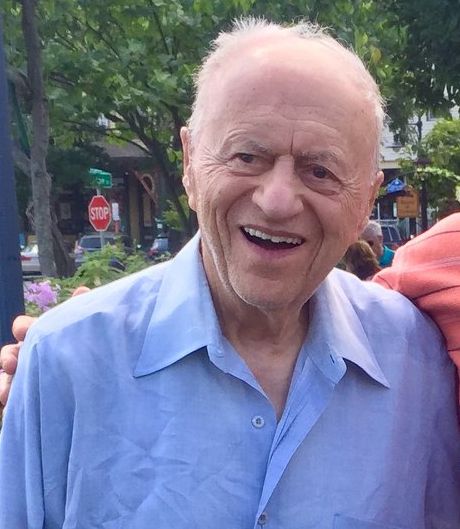EAST BRUNSWICK–Telling his courageous journey as a Jewish teenager surviving the Holocaust and its repercussions, author Michael Kesler has written his latest book “The Remnant.”
“The Remnant: On Burning Wings to a Displaced Persons Camp and Beyond” provides a poignant account of Kesler’s survival, perseverance and pursuit of a brighter future as World War II ended in Europe and the early years of its aftermath, according to a prepared statement from the book’s public relations representative.
Kesler was born in 1925. He and his wife, Barbara Reed, Ph.D., professor emerita of journalism at Rutgers University, live in East Brunswick.
Having his latest book published by Vallentine-Mitchel on April 15, Kesler will be celebrating his 97th birthday on July 6.
Kesler and his sister, Luba, fled their home in Dubno, Poland, as panicked teenagers in June 1941, and arrived in the Soviet Union amid the raging war. A flashback catches them in Stalingrad, besieged by the Germans. A stroke of luck landed them in Uzbekistan where Kesler excelled as a veterinary assistant.
Two years later, the Soviet Army drafted Kesler and trained him to remove mines planted by retreating Germans. After a dogged search, his sister found him and persuaded him to desert. An overnight train took them to Samarkand where they set up shop as weavers and Kesler studied economics at night, according to the statement.
At war’s end, they hastened home and witnessed the mass graves of Dubno’s 8,000 Jews, including their parents. Threatened, they found Luba’s boyfriend/soon-to-be husband Moniek’s mother and cousins and headed to a displaced persons camp in Germany. The British government dashed Kesler’s hopes to go to Palestine.
A year later, in 1947, Hillel surprisingly awarded him a scholarship to Colby College in Maine as his first destination in the United States. He soon transferred to MIT and began to build a new life, according to the statement.
Kesler, a Ph.D. chemical engineer graduate of MIT and New York University, had a more than half-century career in the petroleum industry. During his tenure with M.W. Kellogg, he published in 1958 a seminal paper on the use of computers in oil refining design.
Later, at Mobil Oil, he coauthored a series of publications on thermodynamics that starred on the list of most referenced papers in the hundred-year history of the American Institute of Chemical Engineers (AIChE) Journal, according to the statement.
A decade later, as founder and president of his own consulting firm, he pioneered the use of personal computers for equipment design in the petroleum refining industry. His research and consulting activities opened the door for his process engineering work in the revamp and design of several refinery units in the United States, Canada and Europe.
In 2006, Kesler retired due to glaucoma-induced loss of vision. Since that time, he has written several books on his, and his late wife’s, Second World War experiences, according to the statement.
“I had to give up my engineering career since I lost my vision due to glaucoma. I fell back on my war experiences and turned to sharing it with family, friends and others,” Kesler said.
Kesler said it took him 10 years to write “The Remnant” mixed in with other activities, using most of his time devoted to researching the vast background of the catastrophe.
On the cover of Kesler’s latest book, there is a vintage hand-loom with rainbow-colored threads.
“It’s a hand-loom which my sister and I used to make a living in Samarkand, Uzbekistan. We used the material to make colorful robes for the native population, the Uzbeks,” Kesler said.
Besides his newest book, Kesler said he has was also the editor for his late wife Regina Kesler’s book, “Grit: A Pediatrician’s Odyssey From a Soviet Camp to Harvard.” He has also written “Hurdles: When Cancer Strikes a Family” and “Shards of War: Fleeing To and From Uzbekistan.”
After reading his newest book, Kesler said he hopes readers take away, “that even avoiding the gas chambers and crematories, a catastrophe was a very difficult experience, as part of the Holocaust.”
On top of being an author, Kesler also lectures to bring awareness towards East European Jewish civilization before the Holocaust.
“In addition to covering the tragic aspects of the Holocaust, I wanted to celebrate the lives of thriving Jewish communities of Europe before the Holocaust,” Kesler said.
Kesler said he has sketched out a book of short stories, “The Remnant’s Outliers,” about the lives of seven survivors who were part of the group and who excelled in a remarkable way: rebuilding new lives, homes and families.
For more information about Kesler’s newest book, visit Amazon or eBay.
Contact Vashti Harris at [email protected].

